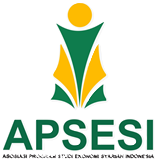Income Inequality in Society: A Comprehensive Study of Solutions from an Islamic Economic Perspective
DOI:
https://doi.org/10.53491/oikonomika.v5i2.1653Keywords:
Zakat, Waqf, Income Inequality, Islamic EconomicsAbstract
Income inequality and poverty are still serious problems in Indonesia's economic development. The Islamic economic approach offers a comprehensive solution through the optimization of social instruments such as zakat, infaq, and waqf. This study discusses the great potential of zakat and waqf in Indonesia in the context of poverty alleviation and equitable distribution of welfare. Based on data from the National Amil Zakat Agency (BAZNAS) and the Indonesian Waqf Agency (BWI), the potential for national zakat reaches more than IDR 300 trillion per year, while the potential for money waqf is estimated at up to IDR 180 trillion. Although the realization of the collection is still far from this figure, various programs such as Zakatpreneur, educational scholarships, free health services, and productive waqf have made a real contribution in improving the standard of living of the mustahik and strengthening the microeconomic sector. This study emphasizes that structured, professional, and sustainable management of Islamic social funds can be an important pillar in suppressing social inequality and accelerating the achievement of people's welfare. Strategic collaboration between the government, zakat, and waqf management institutions, as well as active participation of the community, is needed to realize this potential to the maximum.
Downloads
References
Analisis Efektifitas Pendayagunaan Zakat Produktif Pada Pemberdayaan Mustahik (Studi Kasus LAZISMu Pusat). (2019). AGHNIYA: Jurnal Ekonomi Islam, 1(2). https://doi.org/10.30596/aghniya.v1i2.3191
Badan Pusat Statistik. (2024). Statistik Indonesia tahun 2024. In Statistik Indonesia 2020 (Vol. 52).
Canggih, C., Fikriyah, K., & Yasin, A. (2017). Potensi Dan Realisasi Dana Zakat Indonesia. Al-Uqud : Journal of Islamic Economics, 1(1). https://doi.org/10.26740/jie.v1n1.p14-26
Desiana, R., & Afrianty, N. (2017). Landasan Etika Dalam Ekonomi Islam. Al-Intaj : Jurnal Ekonomi Dan Perbankan Syariah, 3(1).
Fadli, M. R. (2021). Memahami desain metode penelitian kualitatif. HUMANIKA, 21(1). https://doi.org/10.21831/hum.v21i1.38075
Fatmawati. (2021). Kegagalan Pasar Dan Campur Tangan Pemerintah. Jalhu: Jurnal Al-Mujaddid Humaniora, 7(2).
Fiantika, F. (2022). Metodologi Penelitian Kualitatif. In Metodologi Penelitian Kualitatif. Rake Sarasin, March.
Fuady, A. H. (2018). Teknologi Digital dan Ketimpangan Ekonomi di Indonesia. Masyarakat Indonesia Majalah Ilmu-Ilmu Sosial Indonesia, 4(1).
Gunawan, M. I. (2020). Sistem Ekonomi Islam Sebagai Solusi Problematika Sistem Kapitalisme Dan Sistem Sosialisme. EKSISBANK: Ekonomi Syariah Dan Bisnis Perbankan, 4(2). https://doi.org/10.37726/ee.v4i2.138
Hilman, R. S. (2017). Ekonomi Islam Sebagai Solusi Krisis Ekonomi. FALAH: Jurnal Ekonomi Syariah, 2(2). https://doi.org/10.22219/jes.v2i2.5100
Hudaefi, F. A., Saoqi, A. A. Y., Farchatunnisa, H., & Junari, U. L. (2020). Zakat and SDG 6: a case study of baznas, indonesia. Journal of Islamic Monetary Economics and Finance, 6(4). https://doi.org/10.21098/jimf.v6i4.1144
Husna, N. (2014). Ilmu Kesejahteraan Sosial dan Pekerjaan Sosial. Jurnal Al-Bayan: Media Kajian Dan Pengembangan Ilmu Dakwah, 6(23).
Islahiha, N. A., Frita, N., & Maulana, R. (2019). Penerapan Sistem Perekonomian Syariah Dalam Mengatasi Kesenjangan Sosial Ekonomi Di Indonesia. PKM-P, 3(2). https://doi.org/10.32832/pkm-p.v3i2.472
Kamariah, Sukman, & Nirwana. (2021). Problema Wakaf Di Indonesia. Ats-Tsarwah, 1(1).
Kutanegara, P. mande. (1997). Kemiskinan dan Jaminan Sosial di Pedesaan Indonesia. Humaniora, 5.
Lestari, N., Pasha, P. A., Oktapianti, M., & Noviarita, H. (2021). Teori Pembangunan Ekonomi. REVENUE: Jurnal Manajemen Bisnis Islam, 2(2). https://doi.org/10.24042/revenue.v2i2.9071
Moleong, L. J. (2018). Metodologi penelitian kualitatif / penulis, Prof. DR. Lexy J. Moleong, M.A. PT Remaja Rosdakarya.
Muzakir, K. (2022). Prospek Zakat dalam Perekonomian Modern. Journal of Legal and Cultural Analytics, 1(1). https://doi.org/10.55927/jlca.v1i1.879
Rahmawati, Thamrin, H., Guntoro, S., & Kurnialis, S. (2021). Transformasi Digital Wakaf BWI Dalam Menghimpun Wakaf Di Era Digitalisasi. Jurnal Tabarru’: Islamic Banking and Finance, 4(2). https://doi.org/10.25299/jtb.2021.vol4(2).8375
Rakhmat, A. S., & Beik, I. S. (2022). Pengelolaan Zakat dan Wakaf di Malaysia dan Turki: Studi Komparatif. ILTIZAM Journal of Shariah Economics Research, 6(1). https://doi.org/10.30631/iltizam.v6i1.1077
Rijali, A. (2019). Analisis Data Kualitatif. Alhadharah: Jurnal Ilmu Dakwah, 17(33). https://doi.org/10.18592/alhadharah.v17i33.2374
Rudhy Dwi Chrysnaputra, & Wahyoe Pangestoeti. (2021). Peran Dan Fungsi Kewirausahaan Islam Dalam Pembangunan Ekonomi INDONESIA. Al-Iqtishod : Jurnal Ekonomi Syariah, 3(1). https://doi.org/10.51339/iqtis.v3i1.301
Statistik Indonesia. (2024). Statistik Indonesia statistical Yearbook of Indonesia 2024. Statistik Indonesia, 52.
Sugiyono. (2016). Memahami Penelitian Kualitatif. Bandung: Alfabeta.
Sulistyani, D., Asikin, N., Soegianto, S., & Sadono, B. (2020). Pelaksanaan Dan Pengembangan Wakaf Uang Di Indonesia. JURNAL USM LAW REVIEW, 3(2). https://doi.org/10.26623/julr.v3i2.2874
Wati, K., Alifah Putri, N., Zulaikha, S., Lambung Mangkurat, U., & Selatan, K. (2023). Perkembangan Ekonomi Islam Di Indonesia: Antara Peluang Dan Tantangan. In Islamic Education (Vol. 1, Issue 4).
Zakat, T. (2022). Tentang BAZNAS. BAZNAS Surakarta, 8.
Downloads
Published
How to Cite
Issue
Section
License
Copyright (c) 2024 elpinia tanjung, Rukiah, Sarmiana Batubara

This work is licensed under a Creative Commons Attribution-ShareAlike 4.0 International License.





